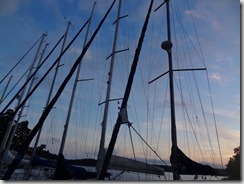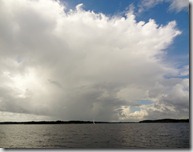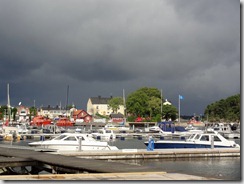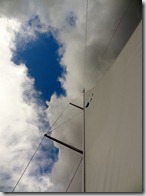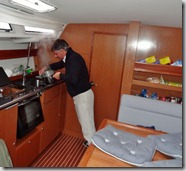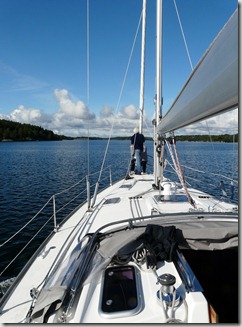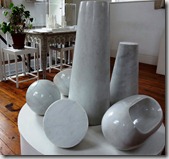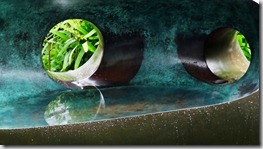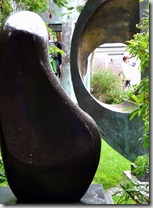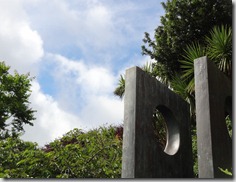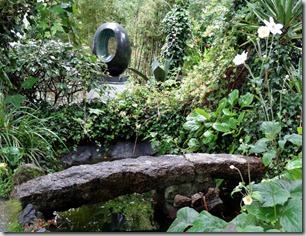More in the album at my Flickr site.
Archives for August 2012
Do expats need vacations?
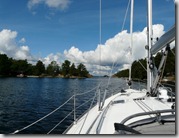 I’m in the US on business for a couple of days, delivering a device prototype to Chicago that my Dutch designers finished in Maastricht last week. They’ve done amazing work – moving from concept to prototype, successful data collection to accepted abstracts, in a few month: light-speed by medical device development standards. This will be the last of the functional validation before completing the pre-production design: I’m back in the Netherlands on Monday to work with the design team on the touchscreen displays and patient interface evaluation.
I’m in the US on business for a couple of days, delivering a device prototype to Chicago that my Dutch designers finished in Maastricht last week. They’ve done amazing work – moving from concept to prototype, successful data collection to accepted abstracts, in a few month: light-speed by medical device development standards. This will be the last of the functional validation before completing the pre-production design: I’m back in the Netherlands on Monday to work with the design team on the touchscreen displays and patient interface evaluation.
When was the last time you were in one place longer than two weeks?
A European friend asked that: ‘given the pace of the past few months, both companies fundraising and moving into preproduction design and testing, it’s not surprising that I’ve been moving around. It’s even more telling that I couldn’t come up with an answer without checking my time sheet.
You live in Europe: it’s like vacation all the time?
A US-based friend asked that: ‘given the pictures and stories that fill my blog, visits to art shows and mooie dorpen, its not surprising that I’ve appeared to be on break. No checking was needed though: I was ready for a vacation without a time sheet.
 These two questions touch on a paradox of expat life: I’m both working harder and leisuring more intensely. Don’t they balance out? Why should expats need a vacation?
These two questions touch on a paradox of expat life: I’m both working harder and leisuring more intensely. Don’t they balance out? Why should expats need a vacation?
Three thoughts:
- Breaking training.
Even though I’m living in Europe, it’s not the same as vacationing in Europe. There are a thousand elements of establishing and living daily life that have to be learned, new language, customs, knowledge and processes that have to pick up, apply, and correct. I am always watching and learning: I love it, but it’s always active and adapting.
A vacation breaks with that – I visit somewhere that I don’t need to learn about or fit into beyond what is interesting and engaging.
- Breaking connectivity.
Since I have family and business connections spread over both sides of the Atlantic, my wired connections sprawl across means and times. News from the US arrives overnight: calls to the US linger past dinner. In between, my virtual organizations require constant coordination and communication, constant e-mail, Skype, phone and Facebook, to manage and motivate the group. I love it, but my to-do list never clears.
A vacation snaps those connections: I advise everyone that I will be offline and I turn off all of the devices. I’m available in emergencies, but otherwise don’t need to connect beyond informal conversations.
- Breaking habits.
I live alongside a notepad and a diary, executing plans and visiting worksites. In a startup, resources are scarce, funding is transient, opportunity feels fleeting. So there’s a bias towards action: if I don’t do things, they don’t get done. The result is 100,000 air miles, closets in three countries, the struggle to find time to read, exercise, practice language or play with charcoals.
A vacation restores balance and dimensionality. I love sailing, the play of wind water propelling the boat, the set and drift of navigating, the scrolling panoramas of sky and shore. The time to study clouds and immerse with a book.
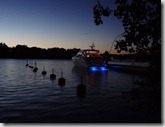 I suppose the justification for vacation is no different for an expat than for anyone else. But the intensity of entrepreneurial life overseas makes taking time off more important.
I suppose the justification for vacation is no different for an expat than for anyone else. But the intensity of entrepreneurial life overseas makes taking time off more important.
No, I still need to take vacations, even though I live in Europe.
And next year I need to plan for two weeks, in the same place.
A Swedish sail
 The Stockholm Archipelago is a wedge-shaped region of thousands of islands extending east from Stockholm, Sweden to the Baltic. On the map it is a tangle of curved waterways and irregular landforms.
The Stockholm Archipelago is a wedge-shaped region of thousands of islands extending east from Stockholm, Sweden to the Baltic. On the map it is a tangle of curved waterways and irregular landforms.
 From the air it shows lush green forest and deep blue water. You can get a hint of what its all about along the shores of Stockholm’s harbors and ferries.
From the air it shows lush green forest and deep blue water. You can get a hint of what its all about along the shores of Stockholm’s harbors and ferries.
But then there’s the view from a sailboat.
Along with Puget Sound, these islands have long been one of my favorite cruising areas.  The waters are protected and not particularly salty. They are, at 19 deg C, tolerable for swimming.
The waters are protected and not particularly salty. They are, at 19 deg C, tolerable for swimming.
The Swedes leave the water around August 15, leaving it empty and moderately priced for the latter part of the summer.
There are nice southerly winds at 5-10 knots, warm days with impossibly blue skies punctuated by slow-drifting squalls, and cool lazy nights.
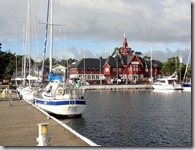 Red-sided, barn-roofed villages dot the larger islands, docks and electricity, a restaurant to discover or a shop to explore. Others have a shoulder of rock and deep silent forest beneath blazing stars.
Red-sided, barn-roofed villages dot the larger islands, docks and electricity, a restaurant to discover or a shop to explore. Others have a shoulder of rock and deep silent forest beneath blazing stars.
We book through Boat Charter Stockholm, an outstanding group with well-maintained new boats at good prices. Then we gather a group of friends, food, drink, a couple of decks of cards, and a vague idea of where to go. And we take life as it comes, sailing, cooking, navigating, exploring for long days of total vacation.
Off on vacation
How will we be writing books?
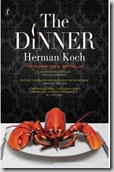 I went down to the bookstore yesterday to look for a copy of The Dinner, by Dutch author Herman Koch. Recently recommended by the Economist, who called it “Irredeemably Dutch”, I wanted both the English and Nederlands versions for practice.
I went down to the bookstore yesterday to look for a copy of The Dinner, by Dutch author Herman Koch. Recently recommended by the Economist, who called it “Irredeemably Dutch”, I wanted both the English and Nederlands versions for practice.
Why go to a bookstore: why buy two paper versions? I can go from one to the other, checking my comprehension, making annotations, working anywhere without power or being online. I may be retro, but thee isn’t a content consumption device (yet) that replaces the utility and experience of a book.
I have gravitated away from paper newspapers, though: I like my online subscription to the FT and read all the Dutch dailies electronically. I think it’s because the articles are short and I enjoy chaining through related links. The only place I enjoy a paper newspaper is on the train. Magazines are still somewhere between: long-form analyses (the Economist) or narratives (the Atlantic or New Yorker) just feel both longer and harder to read without a paper copy..
So the way I consume print media is changing (and I rue what it is doing to newsrooms and bookstores).  But I think a similar change, less noticed, is going on in the way print media is produced.
But I think a similar change, less noticed, is going on in the way print media is produced.
Imagine you wanted to write an account of the Amsterdam Fashion Week, in the style of Seven Days in the Art World, viewing the ecology of fashion merchandising from various participant perspectives.
The Pitch may be to the participants directly, rather than to an agent. Their cooperation enables the work to be completed; online research and remote interviews fill in the necessary background.
The Funding would come from crowdsourcing rather than a publisher. What will a week of travel and research cost: 5-10K$? Well within the reach of Kickstarter and others. Promise small investors copies of the finished work, souvenirs from Fashion Week, tickets to the next Fashion Week for big donors.
The Work would be a tightly scripted project, note and photography, maybe a small documentary, produced more like a movie. A tight plan, a good local staff, a week of intense work, a sack-full of material to go home with and start writing.
The Writing is done chapter by chapter, posted for both subjects and investors to read, comment on, and correct as the book develops. While there is an outline and timeline to structure the process, the execution is fluid, taking advantage of opportunities from the network of collaborators and ideas from critics.
The Publication is done electronically, using variations on Kindle Singles that makers of electronic readers are using to publish new works for their users.
The Book Tour is done using social networks, tracking hits, purchases, reviews, and comments real-time, much as journalists do with their articles today. It’s supported by YouTube video and real-time interviews.
It feels like an alternative publication ecosystem I rapidly taking shape which will change the way books get written, making them much more author driven, investor collaborative, and reader enhanced.
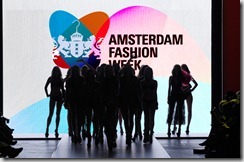 ‘Different’, but I’m not convinced (yet) ‘better’. I’ll miss going to the bookstores, miss notating paper copy, miss reviews like the Economist’s and the anticipation of a good story.
‘Different’, but I’m not convinced (yet) ‘better’. I’ll miss going to the bookstores, miss notating paper copy, miss reviews like the Economist’s and the anticipation of a good story.
The country that, some claim, produces the tallest, blandest men in Europe—a nation of tolerant, easy-going liberals who appear to have solved all their major social problems—turns out to be something quite different. The Netherlands’ political correctness is, in Mr Koch’s telling, a smokescreen for all manner of inchoate prejudices and dislikes…
The Hepworth Sculpture Garden
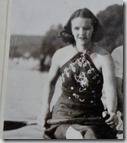 Barbara Hepworth was a sculptor living in Cornwall from the 40’s through the 70’s. She worked in her house near the center of town, best known for flowing organic stoneworks that remind me of Henry Moore. She died in 1975, but her home has been converted to a museum maintained by a family trust. The indoor collection is evocative and it’s interesting to see her workshop – no molds to form or copy pieces at all. She just enjoyed hammering away at raw rock to reveal what she wanted.
Barbara Hepworth was a sculptor living in Cornwall from the 40’s through the 70’s. She worked in her house near the center of town, best known for flowing organic stoneworks that remind me of Henry Moore. She died in 1975, but her home has been converted to a museum maintained by a family trust. The indoor collection is evocative and it’s interesting to see her workshop – no molds to form or copy pieces at all. She just enjoyed hammering away at raw rock to reveal what she wanted.
The real treasure, though, is her outdoor sculpture garden.
 She designed it and placed the pieces, bringing in help with the planting and cultivation. The mature result is a wonderful juxtaposition of plants and stone, each framing the other. The wandering paths offer peepholes and panoramas, combinations of color and contrasting light that are work I themselves.
She designed it and placed the pieces, bringing in help with the planting and cultivation. The mature result is a wonderful juxtaposition of plants and stone, each framing the other. The wandering paths offer peepholes and panoramas, combinations of color and contrasting light that are work I themselves.
I really enjoy sculpture gardens, and along with a huge installation in the Loire each summer, this has to be my favorite.




